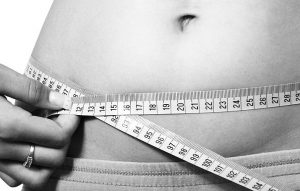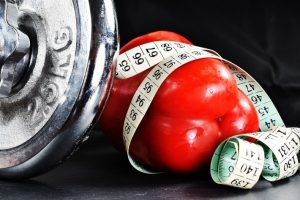Overview
Losing weight and losing fat are not one and the same thing. If you are getting frustrated with your scale not showing any results, you might not be looking in the right place, to begin with. Numerous diets, exercise routines, and even lifestyle trends claim to help you achieve your desired weight in as little time as possible. As someone who has experimented with nutrition and physical activity for their entire adult life time, I guarantee they do not work. Many other nutrition professionals, as well as medical doctors, have reached the same conclusion through rigorous trials so you needn’t experiment needlessly. A properly planned targeted fat loss nutritional plan combined with regular exercise and the addition of a high quality herbal fat burner such as thermo-xy from DNA Lean is always the fundamental basis of my fat loss strategy.

Furthermore, you don’t need to push yourself against a fictional timer, it won’t do you much good to set unachievable goals in ridiculous timeframes. In addition, fast-loss diets don’t do anything to your body’s fat percentage. They just dehydrate your body, while also depriving you of nutrients that are essential to your health. What you should actually focus on is what you look like in the mirror, whether you feel good with your body, and whether the clothes that used to fit still do (or fit better than ever).
3 Ways You Can Burn Fat Faster than Ever
Your fight is not with your scale, but rather with unhealthy habits. If you eliminate the latter and introduce a series of healthy ones, fat loss will follow suit. Sometimes faster than you think. Here is a list of the three fastest, medically proven ways to lose fat. It won’t be in a week and it won’t be a miraculous, instant change. At the same time, you won’t have to worry about reverting to your previous condition just a short period afterwards. It will be gradual, and more long-term than any unachievable promise can ever hope to offer you. Most importantly, you’ll feel more empowered every step of the way.
- Strength train for muscle
Weight training three times a week is, by far, the best way to re-model your entire body in a healthy way. While many do overstate the difference in metabolic rate between fat and lean muscle mass, with some claiming that 1 pound of muscle can burn as much as 30 times the number of calories that 1 pound of fat does, you should not be distracted from the core fact. Muscle tissue does require a lot more energy to maintain when resting than its adipose counterpart. Although the values can vary quite a bit on an individual basis, it was shown that muscle is at least three times more energy demanding than fat. On average, if you’d convert most of your fat into brawn, you’ll be burning anywhere from 150 to 200 additional calories every day.
It is true that cardio exercises help you lose more calories right now, but they do little for tomorrow. On the other hand, if you manage to increase your body’s lean tissue through strength training, this will protect you in the future. Aside from keeping you safe from fat, muscle is a game changer in terms of health in old age. Maintaining muscle mass and function throughout your life will greatly improve your body’s ability to naturally fend off metabolic diseases and extend your lifespan.
- Eat enough protein
A study of over 330 obese bariatric surgery candidates showed that if you train and eat appropriately, you can lose fat and gain muscle at the same time. High-protein diets are not only important for your body’s ability to synthetize lean tissue from the nutrients you provide it, but they were also shown to reduce cravings, improve satiety, and hard tackle those late-night carb binges. If this were not enough, making sure that 30% of what you eat is protein will further boost your metabolic rate by a minimum of 80 calories per day. Cutting down on trans and saturated fats will further improve this number, as well as contribute to your fast fat burn goals.
More importantly, you need to ensure that all of your macronutrients, not just protein, come from high-quality sources. Eating whole, unprocessed foods will ensure that your body is not processing excess calories that come from preservatives and other related substances. Pulses, poultry, and fish are all great sources of protein. Try your best to limit or, better yet, eliminate cold cuts, bacon (especially bacon), and other such foods.
- Ditch sugar
The third most impactful change you can do to promote quick weight loss is to cut down on low-quality foods that are packed with sugar. This includes processed items that are full of simple carbohydrates, refined sugar, and sugar-dense syrups – snacks, sugar-sweetened drinks, white grains. As you feed your body fewer carbohydrates and maintain appropriate levels of activity, it will gradually start to use up to use your love handles in order to account for your daily energy requirements. This change alone can help you lose an average of 13 pounds worth of fat over a 12-month period.
Cutting carbs altogether (ketogenic diet) can actually induce even faster weight loss, but a lot of concern was raised in terms of their impact on overall health. You needn’t take such drastic measures, but simply reduce carbs to no more than 30% of your whole macronutrient in-take. If you’re eating carbohydrates, make sure they come from whole-grain pasta, whole-grain bread, brown rice, and other equivalents. Replacing refined (white) grains will have a noteworthy influence on your health and weight.
Slow and steady wins the race
It may not be over the course of a week, but these three methods are guaranteed to help you lose fat in the long run. As you incorporate the first, second, and third steps, the rate at which your health and your appearance improves will gradually increase. While two or three decades ago we were working completely in the dark, medical sciences and nutrition have advanced to such a degree that we can now say, for certain, what changes you need to incorporate in your lifestyle in order to lose weight definitively.
Furthermore, you’ll find that these three rather innovative fat-burning techniques lead to long-standing results. Despite the fact that you’re going slow and steady (as compared to honestly unachievable goals of 2 weeks or so), your finish line won’t come back to race you. You won’t lose much needed water and essential nutrients, but excess adipose tissue. Maintaining this behaviour will basically ensure you won’t regain what you’ve lost, as opposite to fad, unsubstantiated diets that will have you in the weight-loss race before you know it.
References:
-
-
-
- Dissecting the energy needs of the body: https://journals.lww.com/co-clinicalnutrition/Abstract/2001/03000/Dissecting_the_energy_needs_of_the_body.11.aspx
- Live strong and prosper: the importance of skeletal muscle strength for healthy ageing: https://www.ncbi.nlm.nih.gov/pmc/articles/PMC4889643/
- Resistance Training Conserves Fat‐free Mass and Resting Energy Expenditure Following Weight Loss: https://onlinelibrary.wiley.com/doi/full/10.1038/oby.2008.38
- The effects of consuming frequent, higher protein meals on appetite and satiety during weight loss in overweight/obese men: https://www.ncbi.nlm.nih.gov/pubmed/20847729
- A high-protein diet induces sustained reductions in appetite, ad libitum caloric intake, and body weight despite compensatory changes in diurnal plasma leptin and ghrelin concentrations: https://academic.oup.com/ajcn/article/82/1/41/4863422
- Do ketogenic diets really suppress appetite? A systematic review and meta‐analysis: https://onlinelibrary.wiley.com/doi/abs/10.1111/obr.12230
- Effect of Low-Fat vs Low-Carbohydrate Diet on 12-Month Weight Loss in Overweight Adults and the Association With Genotype Pattern or Insulin Secretion: https://jamanetwork.com/journals/jama/fullarticle/2673150
-
-



Leave a Reply